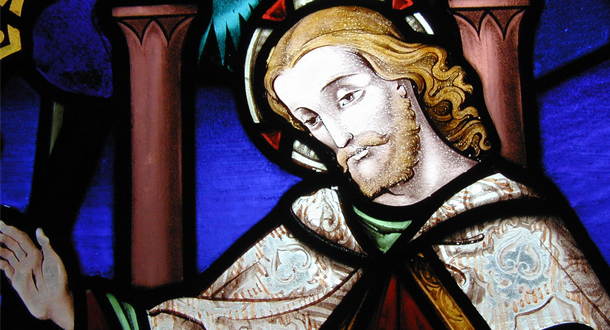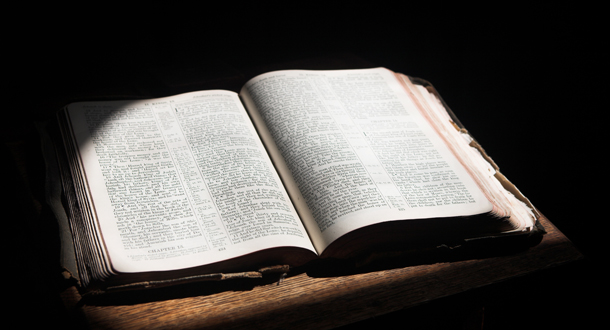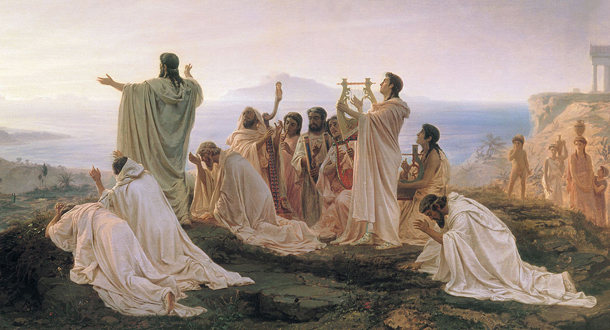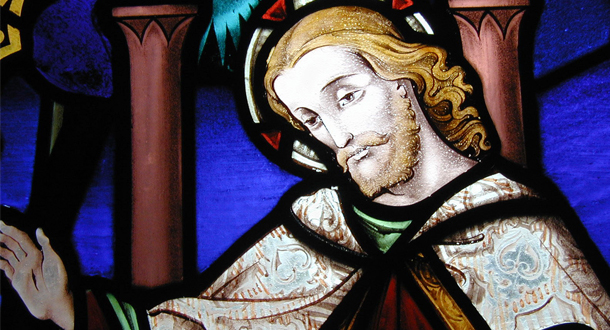
Scripture:
Acts 1:1-11
Ephesians 1:17-23
Luke 24:46-53
Reflection:
They did him homage and then returned to Jerusalem with great joy. -Luke 24:53
Today is unique when it comes to the readings for the liturgy. There are three choices depending on which diocese you are in. You could be celebrating Thursday of the Sixth week of Easter and celebrating the Feast of the Ascension this coming Sunday. Your parish might be celebrating the Memorial of Saint Paul VI, Pope. Or you could be celebrating Ascension Thursday. Whichever you are celebrating, I hope that this reflection provides a spiritual nugget or two to ponder upon today.
The Ascension of Christ marks the end of his time on earth with the Apostles and his triumph over Satan. Christ takes his place in heaven where he will soon send the Holy Spirit upon the Apostles. The last line of the Gospel of Luke, which is quoted above, has the Apostles celebrating and praising God. They now understand what Christ has been trying to teach them and know that the Easter joy is not over.
The Gospel of Luke begins and ends in the Temple. This was a sacred place for the Jewish people during Christ’s presence on earth. It housed the Holy of Holies, the place where the Ark of the Covenant was and was a place that only the High priest could enter. This was the place where they could be closest to God. This was the place where heaven and earth met, the axis mundi. This was the perfect place for the Apostles too celebrate what they had just experienced.
Christ’s Ascension mirrors his Transfiguration, except that he shows his glory to all of the Apostles at his Ascension. Seeing the Ascension of Christ revealed all things to them and they were exuberant with joy. Witnessing God’s son ascend into heaven must have given them great hope in all that he taught them. We, too, need to embrace the hope we have in the Resurrection and Ascension of Christ. The messages have been clear this past week, as sections of John 15 proclaimed to us: “Do not be afraid”; “I am sending the Advocate”; “You are the vine and my father is the vine grower”.
Saint Paul VI was elected to the papacy after the death of Saint John XXIII and continued the tradition of the Apostles in leading the Church. He saw the Second Vatican Council through to its closing in 1965. He took on the task of leading the Church into a more modern world. During his fifteen-year papacy, he had a historic meeting with the Greek Patriarch. He established World Peace Day and wrote many important encyclicals. Humanae Vitae has had an impact not only on all Catholics and also provides the world with a guide for the treatment of human life.
Populorum Progressio addressed economic justice and development for all people. Saint Paul VI authored three encyclicals on Mary, declaring Mary as “Mother of the Church”. He became the first pope in modern history to travel widely, using his visit to the United States to address the United Nations, where he promoted peace, dialogue, and social justice. He modernized the liturgy and established the Synod of Bishops as a permanent advisory body to the papacy. He allowed himself to be led by the spirit of the Second Vatican Council, putting into motion all that was contained in the documents.
How do we reflect the hope of the Ascension or the passion of Saint Paul VI in our lives?
Linda Schork is a theology teacher at Saint Xavier High School in Louisville, Kentucky.







